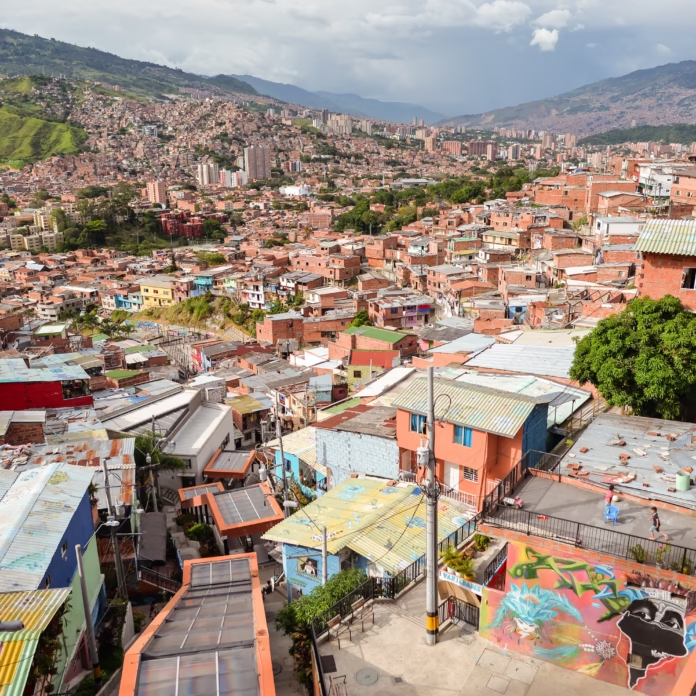Brazil’s healthcare landscape features a dual system composed of public and private health insurance, offering residents a broad range of services. While both sectors aim to promote health and well-being, they differ significantly in accessibility, quality, coverage, and cost, yet also share certain characteristics.
Public Health Insurance: SUS
Brazil’s public health system, Sistema Único de Saúde (SUS), was created in 1988 and is one of the largest universal healthcare systems in the world. It provides free and comprehensive coverage to all residents and even visitors—regardless of legal status or income level—without requiring enrollment. Funded through taxes and managed by the federal, state, and municipal governments, SUS covers an extensive range of services, including primary care, hospital and emergency services, mental health, organ transplants, oncology, and pharmaceuticals.
A major strength of SUS is its commitment to universality and equity, aiming to guarantee healthcare as a right. However, public facilities often face resource limitations, resulting in long wait times, understaffing, and uneven quality, especially in rural or underserved areas.
Private Health Insurance in Brazil
In contrast, private health insurance is optional and regulated by the National Agency of Supplementary Health (ANS). Around 25% of Brazilians, particularly in urban centers, opt for private coverage to access faster, more comfortable, and higher-quality care, including private hospitals and clinics.
Leading providers such as Notre Dame Intermédica, Hapvida, Bradesco Saúde, Amil, and SulAmérica Saúde dominate the market. These insurers offer various plans with specialist consultations, elective surgeries, maternity care, and advanced diagnostics, often with shorter wait times. Many Brazilians receive private coverage as an employment benefit, while others purchase it individually.
International providers like Cigna Global, Bupa Global, and Allianz Care cater primarily to expatriates, offering worldwide coverage and services in multiple languages.
Similarities and Differences
Similarities:
- Both systems aim to improve health outcomes and include preventive, curative, and emergency care.
- Both offer hospitalization, specialist services, and prescription drugs, although the quality and access levels differ.
- Both are regulated by government agencies—SUS by the Ministry of Health and private insurers by ANS.
Differences:
- Access: SUS is free and universal; private insurance is paid and selective, often linked to employment or individual purchase.
- Quality and Speed: Private care typically offers faster appointments, better infrastructure, and more comfort, whereas SUS may involve crowded facilities and delays.
- Cost: SUS has no out-of-pocket cost for services, while private insurance involves monthly premiums, co-pays, or deductibles.
- Equity: SUS is designed to reduce inequality, while private insurance may reinforce socio-economic gaps, as not everyone can afford it.
Top Public Health Insurance in Brazil: Sistema Único de Saúde (SUS)
Brazil does not have multiple public health insurance programs like some other countries; instead, it operates a single, unified national system known as the Sistema Único de Saúde (SUS). SUS is one of the most comprehensive and far-reaching public healthcare systems in the world, and it serves as the sole public health insurance program for the Brazilian population.
1. Sistema Único de Saúde (SUS)(Official Website: https://www.gov.br/saude/pt-br)
Cost to Users:
SUS is completely free at the point of service for all users. Funded primarily through federal, state, and municipal taxation, there are no monthly premiums, co-pays, or deductibles for any of its services.
Available Services and Coverage Features:
SUS offers a broad and inclusive range of healthcare services that covers nearly all medical needs from birth to end-of-life care, including:
- Preventive care (e.g., immunizations, health education)
- General practitioner and specialist consultations
- Diagnostic testing (lab work, imaging, etc.)
- Hospital care and surgeries
- Maternity care (prenatal, delivery, postnatal)
- Dental and vision services
- Physical therapy and rehabilitation
- Emergency and urgent care
- Organ transplants and cancer treatments
- Mental health services
- Chronic disease management
- Prescription medication (via Farmácia Popular program)
Notably, even complex and high-cost treatments, such as dialysis, HIV/AIDS therapy, and chemotherapy, are fully covered.
Eligibility and Accessibility:
SUS is open to all residents and visitors in Brazil—citizens, permanent residents, undocumented immigrants, tourists, and expatriates alike. There is no need to apply or enroll in advance to access emergency services. However, for scheduled or non-urgent care, having a CPF number (Brazilian tax ID) and registering with a local health post (Unidade Básica de Saúde – UBS) can help streamline access.
Core Financial Features:
SUS is primarily funded through general taxation, including income taxes, value-added taxes (VAT), and municipal taxes. Approximately 9% of Brazil’s GDP is spent on healthcare, with about 45% going to the public sector, which includes SUS.
- No out-of-pocket costs for users
- No deductibles, co-payments, or premiums
- Government handles cost control and reimbursement to service providers
- Universal financial protection against catastrophic health expenditures
Consumer Satisfaction Score:
While Brazilians broadly support the idea of universal public health care, consumer satisfaction with SUS varies widely based on location and the quality of infrastructure.
- In urban centers and better-funded regions, satisfaction can be relatively high, especially for emergency and maternity services.
- In rural or underserved areas, long waiting times and inconsistent service quality can reduce satisfaction.
A 2023 national health survey indicated:
- 62% of Brazilians rated their experience with SUS as “good” or “very good.”
- Satisfaction is highest among low-income users who rely entirely on public care.
- Main criticisms include wait times, lack of specialists, and outdated equipment in some areas.
Top 5 Private Health Insurance Providers in Brazil
Brazil’s private health insurance market is one of the largest in Latin America and serves around 25% of the population, primarily in urban centers. Regulated by the National Supplementary Health Agency (ANS), these insurers offer faster access, enhanced comfort, and broader medical options than the public SUS system. Below are the top five private health insurance providers in Brazil, evaluated by their market share, service coverage, affordability, financial features, and consumer satisfaction.
1. Notre Dame Intermédica(Official Website: https://www.gndi.com.br)
- Cost: Starting around BRL 200–500/month, depending on plan type and location.
- Available Services: Offers comprehensive coverage including primary care, specialist consultations, hospital stays, surgeries, emergency services, diagnostics, dental, and wellness programs.
- Open for All: Open to individuals, families, and corporate clients; widely available in São Paulo and Southeast Brazil.
- Core Financial Features:
- Offers prepaid plans and coparticipation models (lower premiums with co-pays).
- Strong cost control through its own hospital and clinic network.
- Offers prepaid plans and coparticipation models (lower premiums with co-pays).
- Consumer Satisfaction Score: High customer satisfaction due to extensive network and integrated service model. Rated above 75% in user experience surveys by ANS in 2023.
2. Hapvida Assistência Médica(Official Website: https://www.hapvida.com.br)
- Cost: Affordable plans starting at around BRL 150–400/month, particularly attractive in the North and Northeast.
- Available Services: Full coverage including hospitalization, consultations, exams, preventive care, and surgeries.
- Open for All: Accessible to individuals, families, and businesses with a strong regional focus.
- Core Financial Features:
- Vertically integrated with own hospitals, labs, and imaging centers.
- Cost-efficient operations result in competitive pricing.
- Vertically integrated with own hospitals, labs, and imaging centers.
- Consumer Satisfaction Score: Scored around 70–75% in recent ANS evaluations, praised for affordability and accessibility.
3. Bradesco Saúde(Official Website: https://www.bradescosaude.com.br)
- Cost: Mid-to-premium range, starting at BRL 400–1,200/month depending on coverage.
- Available Services: Comprehensive coverage including national hospital network access, specialist care, international assistance, dental, and wellness services.
- Open for All: Available to individuals, families, and corporations; often chosen by large employers.
- Core Financial Features:
- Offers extensive reimbursement policies and various deductible options.
- Includes value-added services like telemedicine and concierge programs.
- Offers extensive reimbursement policies and various deductible options.
- Consumer Satisfaction Score: Very high, with a consumer approval rate above 80%, known for strong brand trust and nationwide network.
4. Amil Assistência Médica(Official Website: https://www.amil.com.br)
- Cost: Ranges between BRL 300–900/month, depending on plan type and region.
- Available Services: Offers extensive plans that include consultations, surgeries, exams, therapies, and access to premium hospital networks.
- Open for All: Available nationwide, with focus on individual and especially corporate clients.
- Core Financial Features:
- Offers tiered plans, including Amil Fácil for budget-conscious users and Amil One for premium customers.
- Includes digital services and mental health platforms.
- Offers tiered plans, including Amil Fácil for budget-conscious users and Amil One for premium customers.
- Consumer Satisfaction Score: Receives 75–80% satisfaction, appreciated for flexibility and tech-driven services.
5. SulAmérica Saúde(Official Website: https://www.sulamerica.com.br/seguros/saude)
- Cost: Mid- to high-tier, from BRL 350–1,000/month.
- Available Services: Includes general and specialist care, hospital coverage, dental, mental health, and wellness incentives.
- Open for All: Widely available for individuals, couples, families, and businesses.
- Core Financial Features:
- Offers customizable plans, optional dental and life insurance bundles.
- Provides access to exclusive service networks and 24/7 digital health assistance.
- Offers customizable plans, optional dental and life insurance bundles.
- Consumer Satisfaction Score: One of the best-rated, consistently scoring 80%+ in surveys for service quality and customer support.
READ MORE: Private and public health insurance of Dominican Republic (Make informed choices)


